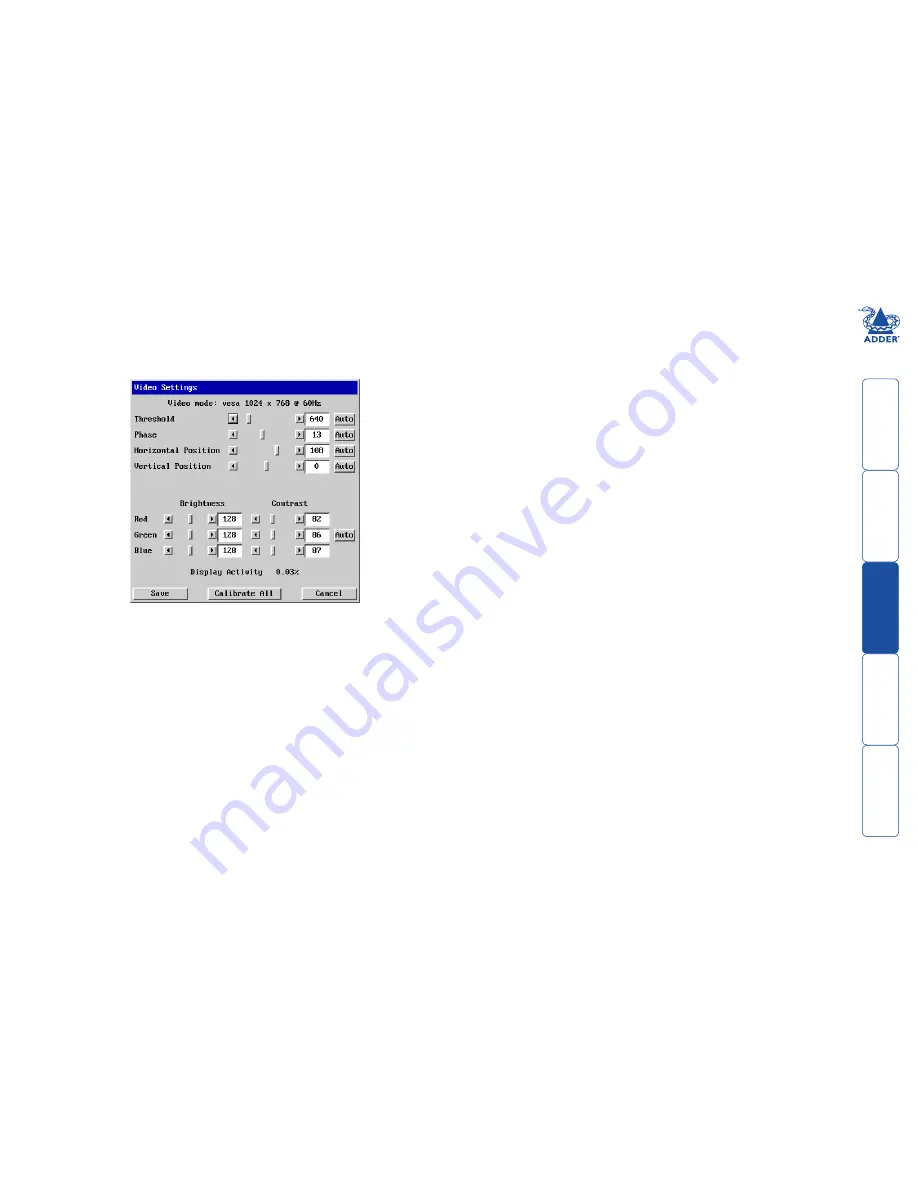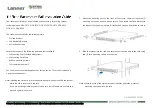
36
Video Settings
This dialog provides access to all of the key video settings that determine image
quality and link performance.
Note: Calibration is not required for digital video sources.
Using automatic configurations
• Every setting can be individually subjected to an automatic configuration
(click the appropriate ‘Auto’ button) and most can also be manually
adjusted.
• Use the ‘
Calibrate All’ button to automatically determine the optimum
settings for all items.
Note: Before using the ‘Calibrate All’ option, if possible, remove on-screen
display (OSD) elements generated by any connected KVM switches (such as
a host name label or menu). These OSD elements use different video rates
to those of the host system(s) and can affect the setting of the automatic
threshold value. AdderLink IP Gold uses an improved calculation procedure
to filter out the effect of these elements. However, best results are obtained
when the screen contains only host system information.
Note: To maximise performance, the threshold level is automatically
increased by 50% when a slow link is detected.
Note: When the AdderLink IP Gold is used with one or more CATx switches,
the threshold needs to be higher than 32 due to the significant amounts of
‘noise’ that these switches introduce. The AdderLink IP Gold configuration
should detect such noise and adjust the threshold accordingly.
Setting the Threshold manually
Occasionally it can be useful to manually adjust the Threshold setting, in order to
achieve a setting that best suits your particular requirements.
1 Use the ‘Calibrate All’ function to ensure that all other settings are
optimised.
2 Click the Threshold left arrow button to decrement the setting by one and
observe the ‘Display Activity’ indicator.
3 Repeat step 2 until the Display Activity indicator suddenly rises to a much
higher level (i.e. 50%). This will mean that you have reached the noise
boundary. At this point, increment the Threshold value by 2 or 3 points to
achieve an optimum setting.
Threshold
The threshold
is effectively a
noise filter that
differentiates
between valid
video signals
and background
noise or
interference.
This has
the effect
of reducing
unnecessary
video signals
between the
iPEPS and the
remote system,
thus improving
performance.
Phase
The phase setting
adjusts the alignment
of the host video
output and the
remote system video
display to achieve the
sharpest image.
Horizontal position
Determines the
horizontal position of
the host screen image
within the viewer
window.
Vertical position
Determines the
vertical position
of the host screen
image within the
viewer window.
Colour, brightness &
contrast
Provides manual
sliders and also an
automatic setting
button to optimise
these important video
constituents for the
current host and
connection speed.
Calibrate all
Click to
determine the
optimum settings
for all aspects of
video the video
connection from
the host system.
Display activity
Indicates the level
of video activity
currently in
progress.
















































